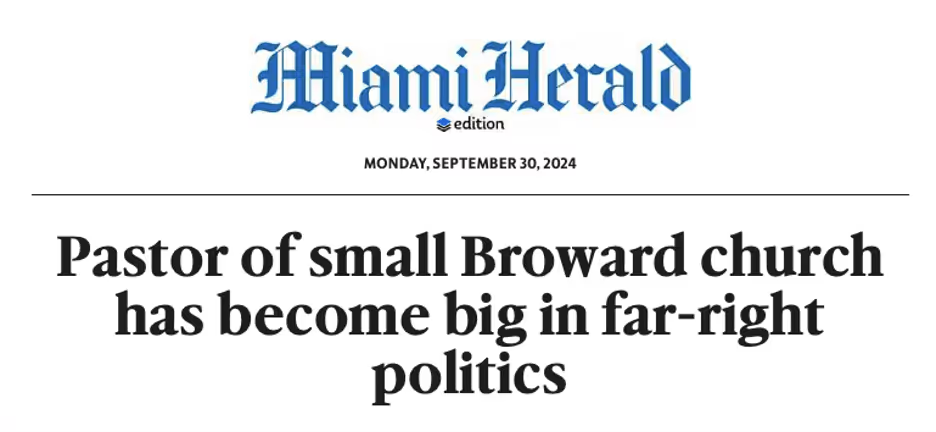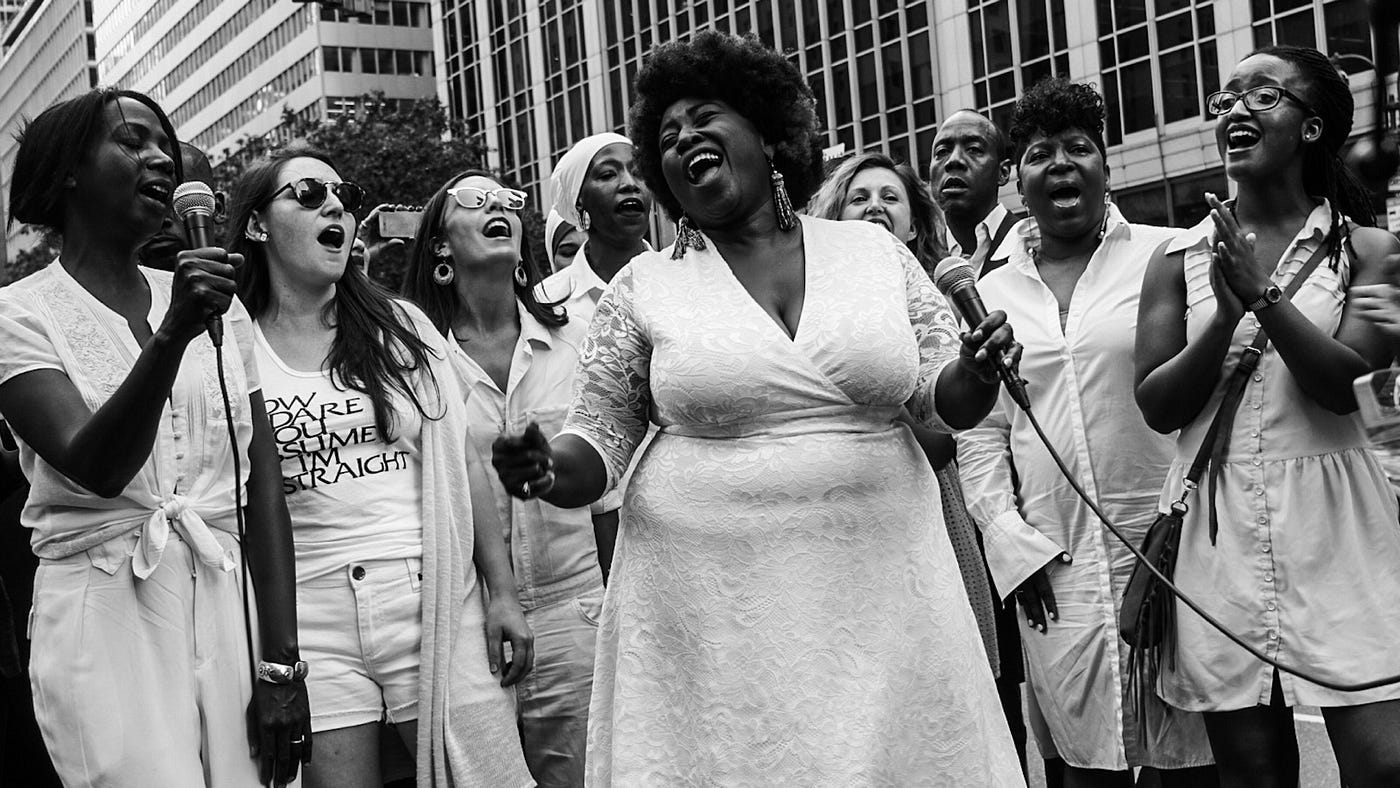
General
Educating Floridians on the New Apostolic Reformation
The Miami Herald published a new exposé about Mario Bramnick, the pastor of a small church in Broward County, Florida, who has outsized influence in the Christian nationalist movement.
“Over the past several years, Bramnick has had the ear of powerful politicians including former president Donald Trump and House Speaker Mike Johnson of Louisiana,” Lauren Constantino reports. “In Florida, he’s on the Faith and Community Advisory Council, a board of 25 members appointed by Gov. Ron DeSantis. He was among evangelical delegations that met in Jerusalem in March and Washington in July with Israel Prime Minister Benjamin Netanyahu and has boasted about his access to the important leaders.”
Constantino turned to Interfaith Alliance for analysis of Bramnick’s association with the New Apostolic Reformation, “a movement that aims to shape every pillar of American society to reflect far-right religious beliefs and echoes the goals of Christian nationalists. While many conservative politicians embrace evangelical support, most tend to diplomatically distance themselves from extreme positions that some religious scholars consider a danger to democracy as well as more mainstream Christian groups.”
“ The main goal of the New Apostolic Reformation is to enhance their own political power and impose their extreme, dangerous and often bizarre beliefs on all Americans,” said Rev. Paul Brandeis Raushenbush, president and CEO of advocacy group Interfaith Alliance, in a statement to the Miami Herald. “... they aim to radically transform society in a way that would marginalize and oppress all those who don’t share their beliefs — including Jews, Muslims, and the overwhelming majority of Christians.”
I spoke with Constantino for close to an hour to go deep into this ideology. I’m quoted in the article commenting on how the New Apostolic Reformation has “contributed to democratic backsliding in the United States and people not wanting to associate with religion.”
“ There’s this anti-democratic element, that is, no matter how the people vote, they’re calling for God to intervene on their side,” I shared. “So it goes beyond faith based advocacy and talking about values, and really gets into something that is theocratic.”
[Click here to read the full article, which was front-page news in Miami.] (https://www.miamiherald.com/news/local/community/broward/article292806034.html)
Transcript

Announcing the 2025-2026 Interfaith Leadership Network Fellows
Interfaith Alliance is proud to announce the 2025–2026 cohort of the Interfaith Leadership Network, an extraordinary group of clergy, pro-democracy advocates, and community leaders advancing civil rights, inclusive religious freedom, and democracy in communities across the country. Through practical support, funding, and a powerful peer network, these fellows will mobilize interfaith collaboration to confront urgent local challenges and strengthen a pluralistic democracy.

One Year of The Trump Administration’s Attacks on Faith Communities and Abuse of Religion
Over its first year, the Trump administration has weaponized religion to advance a white Christian nationalist agenda, attacking faith leaders, houses of worship, immigrants, and religious minorities while undermining core principles of religious freedom. Even as federal power has been used to intimidate and exclude, faith communities across traditions have mobilized to defend democracy, pluralism, and the right of all people to practice their beliefs.


